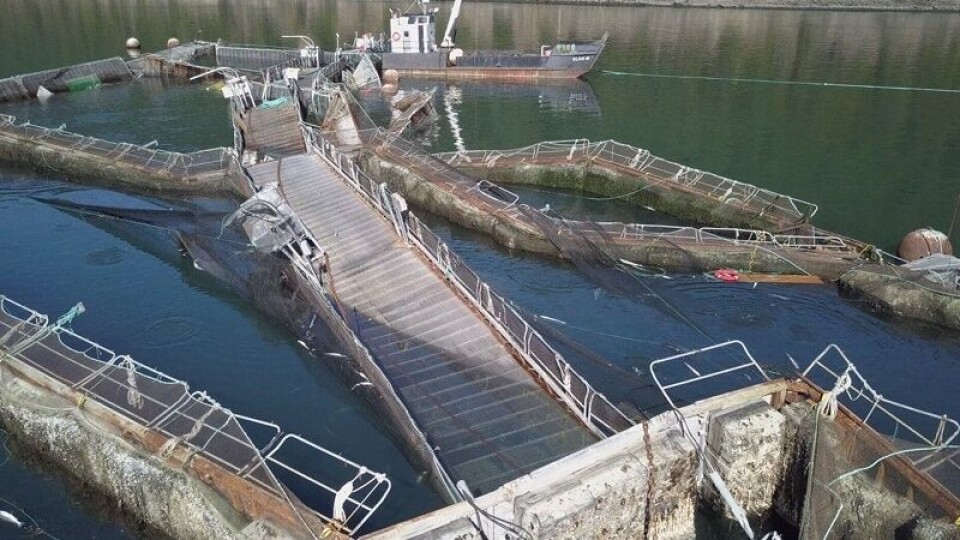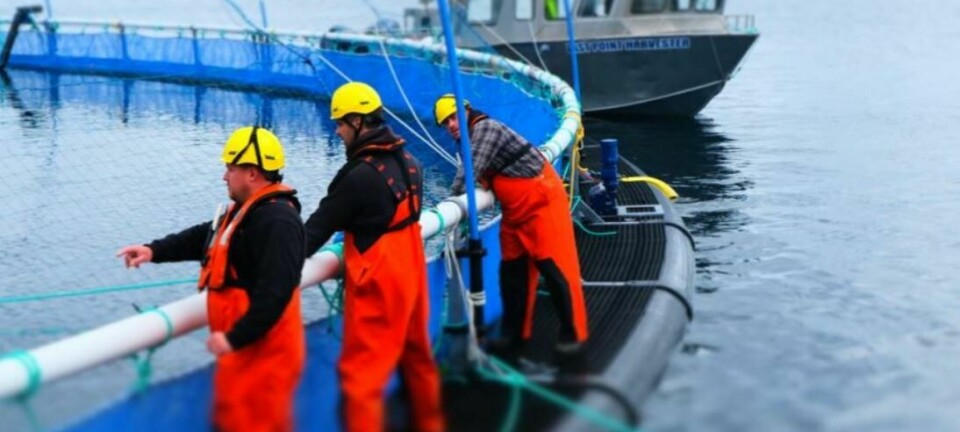
114,000 salmon still on loose after Cooke escape
More than 100,000 Atlantic salmon are estimated to still be in the waters off the coast of Washington state in the north-western United States after a fish farm belonging to Cooke Aquaculture collapsed on August 19 and release thousands of fish.
It has been revealed that the Lummi Nation estimated they had caught 43,522 Atlantic salmon but 114,000 were still out in the waters, The Bellingham Herald reported.

“Washington state law considers this invasive species a pollutant, and our hard-working fishermen have carried the burden of the clean-up efforts,” said Timothy Ballew II, chairman of Lummi Nation, in a news release.
Focusing on local fish
“They continue to do all they can. The remaining Atlantic salmon have spread out well beyond Cypress Island (where the farm was located). At this point many in the local commercial fishing fleet have quit targeting the Atlantic salmon and begun focusing on the local fish again,” said Riley Starks of Lummi Island Wild.
The organisation complained that neither Cooke Aquaculture nor the state has offered to buy back the fish caught by commercial fishing fleets.
“The company and state are expecting (local fishing fleets) to clean up their mess,” Starks said, adding he is still hopeful Cooke would eventually buy the fish back.
'Meet our obligations'
In a written statement last week, the company said: "We are deeply sorry about this event and the loss of Atlantic salmon from the Cypress farm. Over the past two weeks, we have been focused on properly and safely removing the fish and equipment from the farm and working with tribal partners, experts and agencies to meet our obligations.
"Cooke Aquaculture Pacific maintains a detailed fish escape and recapture plan as part of its operations, and implemented that plan in response to this loss of fish. The current total count of fish recovered from the damaged farm site is 145,101, with recovered fish still being counted. The farm was stocked with 305,000 Atlantic salmon."
The statement continued: "Cooke has consistently invested in its operations following acquisitions in Maine, Scotland, Spain and Chile with the development and installation of modern farming technology. As an industry leader, Cooke’s safe and secure practices have brought tremendous economic and community benefits to the regions where we operate. We commit to making the same investments in our Washington operations and people."
More prey than predators
The non-native fish pose a risk to native stocks because they can potentially spread diseases and compete for food and spawning grounds, according to the Washington Department of Fish & Wildlife.
But Michael Rust, a researcher with the US government's National Oceanic and Atmospheric Administration, recently told The Seattle Times the Atlantic salmon are more likely to be prey than predators.
On the other hand, a moratorium is still in place on new leases or permits for Atlantic salmon net pens until a review of the incident is completed.






















































